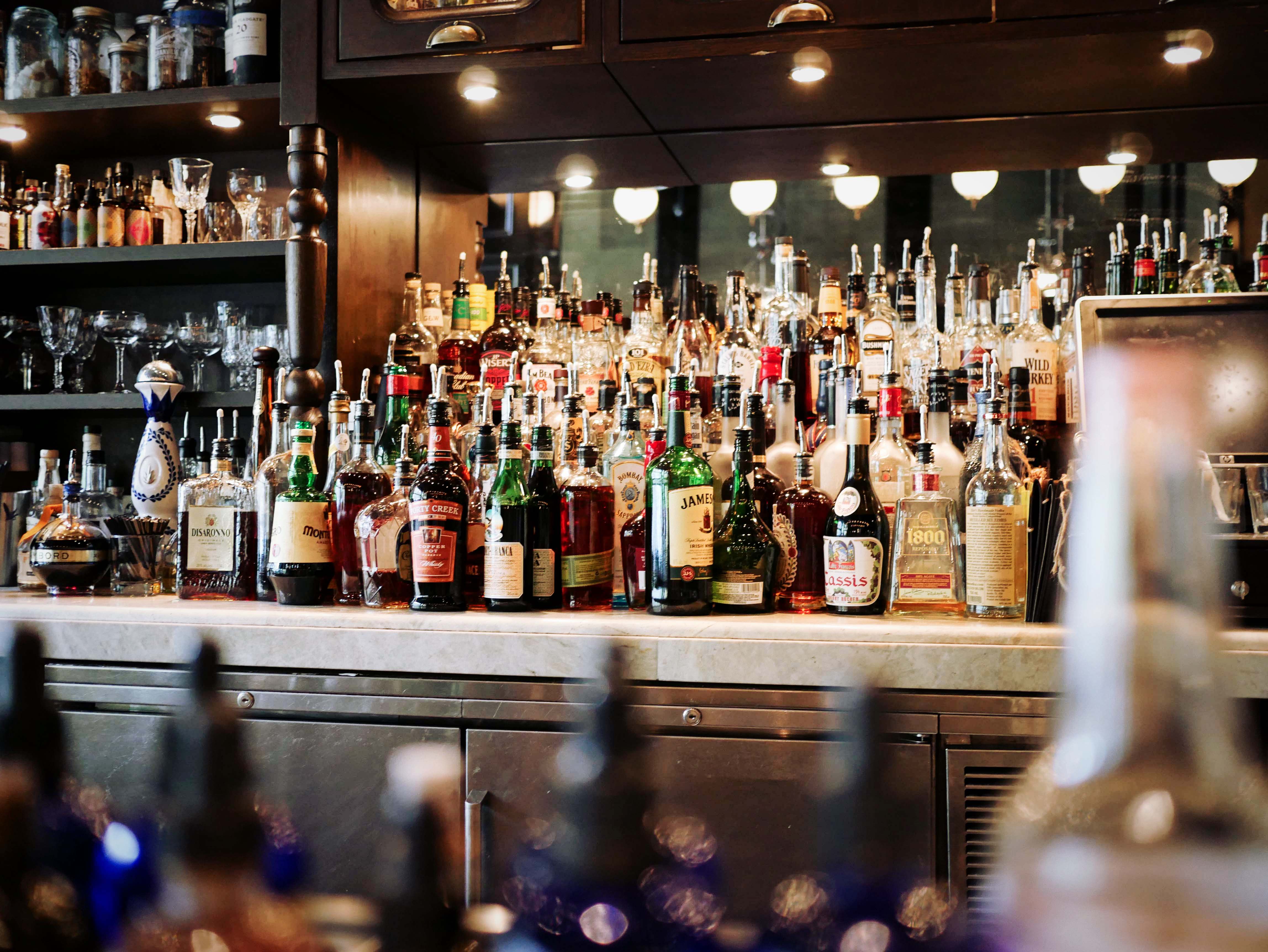
17 Sep Food and Words 2018 review
A taste-bud tingling and brain-cell invigorating day of foodie heaven
What is Food and Words? It’s a day spent being served delicious morsels, accompanied by great coffee, tea and wine, interspersed with thought-provoking presentations from some of Australia’s leading writers in the wide world of food. Sounds pretty good, right?
Well, you’d be right. And on Saturday 15 September 2018, I was lucky enough to attend my second Food and Words event, having previously attended in 2016. Once again, the event did not disappoint, bringing together a comprehensive program of speakers that covered topics ranging from regenerative agriculture, nostalgia in food memoir writing, how to convey a culture in food writing, and more. In her opening remarks to the event, Laura Dalrymple from Feather and Bone described Food and Words as an “intellectual, gastronomic day spa” and I really can’t better that!
Here’s my recap of some of the event highlights.
Capturing a moment in time: Barbara Santich
Barbara Santich is the doyenne of food writing in Australia. At Food and Words, she spoke about her time living in France in the 1970s, which inspired her memoir, Wild Strawberries, Wild Asparagus. It was interesting to hear Barbara talk about a moment in time that no longer exists, and the changes she has seen in France, particularly its rural villages, and the impact that is having on food culture.
No more sad songs: Gabrielle Chan
Twenty years ago, Gabrielle Chan was a metropolitan journalist from a migrant family. Then she fell in love with a farmer and moved to the country. As a political journalist, Gabrielle, in her new book Rusted Off, is asking us to think more deeply about rural Australia and the typical ‘sad songs’, ‘ salt of the earth’ and ‘redneck’ narratives. She says that food is driving the gentrification and rejuvenation of country towns, and has the capacity to bring city and country together. In this era of drought, Gabrielle also made a compelling case for a shift in policy that rewards good farming and environmental stewardship, rather than throwing government money at the ‘sad songs.’
Challenging paradigms: Charles Massy
And speaking of drought, good farming and environmental stewardship, that brings us to the most surprising session of the day for me. When I saw there was a talk from a farmer on agricultural practices, I was a bit ‘meh.’ I mean, I was going to listen, but it wasn’t what I was spending a Saturday in the city for. Well, let me say right now that this was, WITHOUT A DOUBT, the standout session of the day for me. Charles’s comprehensive call for embracing regenerative agriculture and the evidence he provided of how profoundly this is changing farms around the world was goosebumps stuff. By embracing farming that puts soil health first, Charles believes we can:
- Become more drought resistant
- Improve the nutrition of our food
- Grow and graze more food
- Reduce our use of dangerous fertilisers and chemicals
- By healing landscapes, heal ourselves
I was so inspired that I bought his book and I hope to come back with a review once I’ve finished it.
Feel the energy: Lennox Hastie
Lennox Hastie is the chef behind Surry Hills’s Firedoor – a restaurant that exclusively cooks with wood fire. Lennox spoke about the process of writing a book, and also on the importance of finding the thing that sustains you. And for him, that has been cooking with fire. Lennox says that fire makes him feel more connected to ingredients and that he continues to learn and be pushed on a daily basis. Fire, says Lennox, is not just a heat source, it is instrumental to the flavour of the dish, and more than that, you can “feel the energy of the fire in the food.” Certainly I’m feeling inspired to get the wood barbie out this summer…
Change starts with us: Kristen Bradley and Nick Ritar
The duo behind the permaculture training powerhouse, Milkwood, shared their thoughts on how the planet is in real trouble, but fear isn’t a great motivator for change. In their new book, therefore, Kristen and Nick outline five practical things people can do to instigate change that starts from our kitchens, windowsills and balconies. They shared the stories they’ve heard of how one small change snowballs in the lives of individuals and families, and that grassroots change can have a bigger impact. It certainly resonated strongly after Charles Massy’s talk and has me primed to reboot the veggie garden, compost bin and food preservation efforts.
The healing power of baking: Nadine Ingram
From the moment she stepped on stage talking about her philosophy of “love people with the cake, be loved because of the cake,” Nadine had the audience in the palm of her hand. It didn’t hurt that we’d just had afternoon tea enjoying one of her incredibly moist and delicious Flour and Stone lamingtons. Seriously – run, don’t walk, to get one whenever you are next in the Woolloomooloo region. But it was Nadine’s shocking tale of the sexual harassment she witnessed when working in Michelin-starred restaurants that really hit everyone hard. It was experiences like this that have driven Nadine to encourage more women to pursue baking as a career, and now her business Flour and Stone employs 70% women. There is a healing power in baking, and I look forward to enjoying more of Nadine’s restorative treats.
The reader comes first: Adam Liaw
It’s no secret that I love Adam Liaw. He was at the airport in Tokyo with his family last year when we were flying home (and on the same flight, as it happens, in a pointier end of the plane), but I was too shy to say hello – and didn’t want to interrupt his family time. I spoke with Adam very briefly while shoving lamington in my gob at afternoon tea 🙂
As a copywriter, this session resonated strongly. Adam spoke about the need to consider the reader above all else and how that can influence the content, the medium and the voice. This is a basic principle of writing that is frequently forgotten, especially by businesses. At Food and Words, Adam said that ‘ego is the enemy of good food writing.‘ A lot of my client work is about managing the ego of my clients and writing not what they think they want to write, but instead what their audience needs to read. It was a great reminder to keep pushing clients to put their customers first in any materials I’m writing.
The food
Coffee: The Little Marionette – great filter coffee for people like me who wanted black coffee!
Tea: Ovvio – I loved the lemon myrtle and eucalyptus tea, Akora. Very refreshing on what was a hot 30C day.
Morning tea: Provencal beignets with olive, tomato, basil and fresh curd – a delightful savoury start to the day. There was also water kefir from The Fermentary which I’d never had before but will certainly be having again!
Lunch: An Argentinian-inspired meal with recipes from Ross Dobson, who spoke on his new book with Rachel Tolosa Paz, The Food of Argentina. A highlight was the veal croquettes and the gnocchi with beef ragu, delightfully washed down with a biodynamic rose from Urban Winery Sydney.
Afternoon tea: The afore-mentioned Flour and Stone lamingtons. OMG. So much better than any lamington I’ve ever had before.
The words
And what is a trip to Food and Words without coming away with a few books? The team from Potts Point Bookshop was there to sell books by the speakers as well as other food tomes. I came away with:
- Wild Strawberries, Wild Asparagus by Barbara Santich
- Rusted Off by Gabrielle Chan
- Call of the Reed Warbler by Charles Massey
- Flour and Stone by Nadine Ingram (as a gift for hubby)
- Finding Fire by Lennox Hastie (also as a gift for hubby)
- And last but not least, my book gift (all attendees get a book), Kafka’s Soup by Mark Crick
See you next year?
Food and Words is a great event that I highly recommend. It’s a wonderful day out filled with fascinating speakers, interesting ideas and sumptuous food. What is there not to love? If you go next year, I’d love to meet up with you.

